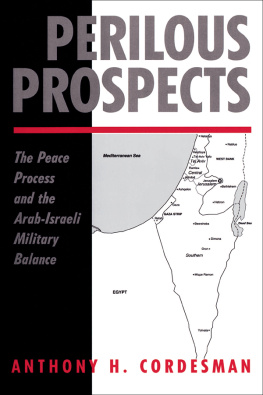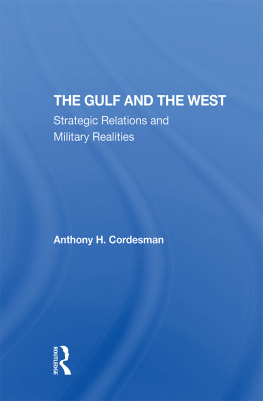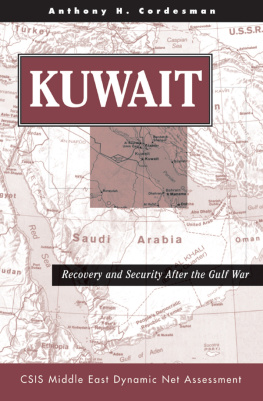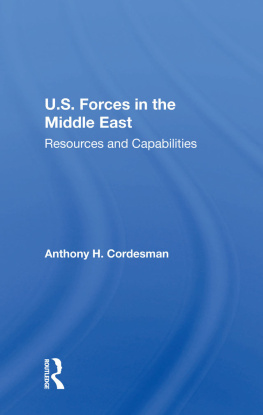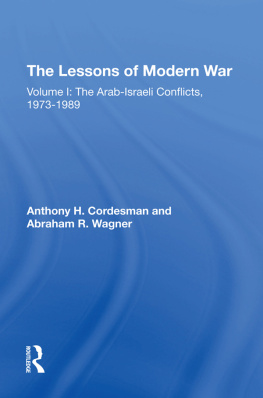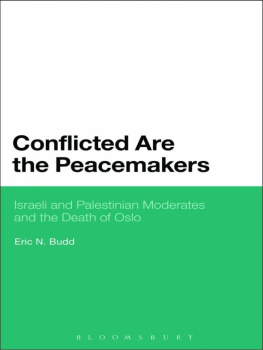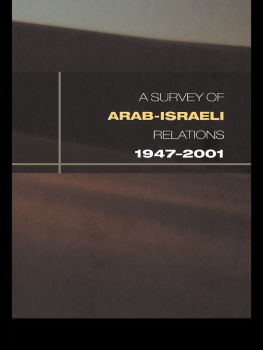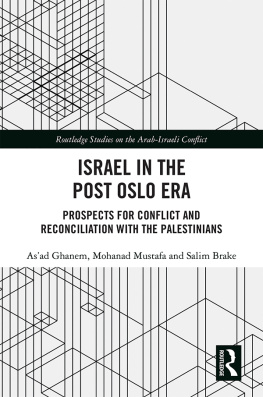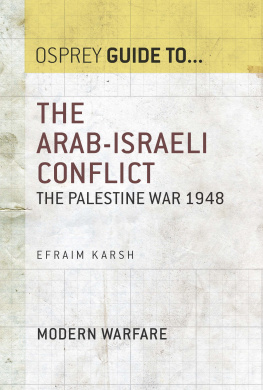First published 1996 by Westview Press
Published 2018 by Routledge
711 Third Avenue, New York, NY 10017, USA
2 Park Square, Milton Park, Abingdon, Oxon OX14 4RN
Routledge is an imprint of the Taylor & Francis Group, an informa business
Copyright 1996 Taylor & Francis
All rights reserved. No part of this book may be reprinted or reproduced or utilised in any form or by any electronic, mechanical, or other means, now known or hereafter invented, including photocopying and recording, or in any information storage or retrieval system, without permission in writing from the publishers.
Notice:
Product or corporate names may be trademarks or registered trademarks, and are used only for identification and explanation without intent to infringe.
Library of Congress Cataloging-in-Publication Data
Cordesman, Anthony H.
Perilous prospects : the peace process and the Arab-Israeli military balance / Anthony H. Cordesman.
p. cm.
Includes bibliographical references.
ISBN 0-8133-2939-6.ISBN 0-8133-3074-2 (pbk.)
1. IsraelDefenses. 2. Arab countriesDefenses. 3. Israel-Arab conflicts. 4. Israel. Treaties, etc. Muna

amat al-Ta

r al-
Filas

nyah, 1993 Sept. 13. I. Title.
UA853.I8C67 1996
355.03305694dc20
96-7426
CIP
ISBN 13: 978-0-8133-3074-7 (pbk)
The author would like to thank Kimberly Goddes, Melissa Lynn Owens, Kiyalan Balmanglidi, and Ara Jabagchourian for researching portions of this bookespecially Kimberly Goddes for her patience in editing various drafts. He would also like to thank Jed Snyder for helping to start the project, and Frederick W. Axelgard for comments on the role it might play.
Several analysts played a role in commenting on the manuscript, and in correcting some of its many errors. The author would especially like to thank Dr. Abdullah Toukan, General Ahmed Fakhr, Dore Gold, Michael Eisenstadt, Tom Neuman, and Robert Satloff. He would also like to thank the many analysts and officials in the Egyptian, Israeli, Jordanian, and US governments, and Palestinian Authority, who cannot be acknowledged by name.
Anthony H. Cordesman
The security and stability of Egypt, Israel, Jordan, Lebanon, the Palestinians, and Syria are shaped by many factors. These include the economic and demographic trends in the region, domestic politics, internal security, and the peace process. Nevertheless, the Arab-Israeli military balance still shapes much of the security situation in the Middle East.
The peace process has not put an end to military threats or the regional arms race. Israels peace agreements with Egypt and Jordan have led to only limited cuts in military forces, and Israel is still negotiating with Syria and Lebanon. Even the best outcome of the peace process will still be peace with violence, and it may often be difficult to tell the difference between the Cold War that preceded the Oslo Agreements and the Cold Peace that has followed. There will be many incidents of violence between Israelis and Palestinians before the final stages of a peace settlement are agreed upon and fully implemented and peace may sometimes escalate to low-intensity warfare.
Even if all the current peace negotiations are successful, it is likely to be a decade or more before Israel and its neighbors achieve a major reduction in their war fighting potential. Fundamental changes in the military balanceand the risks it poses for further warwill require fundamental shifts in the present security polices of the nations in the region, major reductions in future military spending, and a process of confidence building measures and arms control to reduce the potential destructiveness of any future conflict. Peace may even increase some aspects of the regional arms race, at least in the short run, as nations attempt to adapt their force postures to the new demands of peace. This may be particularly true of Israel, which may have to make significant military investments to compensate for the loss of the Golan and territory in the West Bank.
It is also dangerous to assume that there is anything inevitable about the success of the peace process. While it is an axiom that all wars must end, history is equally consistent in warning that all peaces fail. Israeli political support for the peace process is uncertain and Israeli public opinion is becoming increasingly polarized. Yitzak Rabin was assassinated by an Israeli extremist in an effort to end Israels support for peace, and a far less supportive or even hostile government may come to power.
Palestinian support for the peace process is still heavily dependent on the leadership of one manYasser Arafatand might also collapse. There are many final settlement issues that have not been fully addressed, much less resolved. There is political instability in Egypt, Jordan, and Syria. New incidents of terrorism or repression can undermine public support and pro-peace leaders. Forging an exception to history is anything but easy.
The peace process may freeze into an uneasy status quo, or it may fail altogether. If the peace process does fail, the political and military risks of war are almost certain to increase. The present conventional arms race and the search for weapons of mass destruction are almost certain to accelerate. The risk of a sustained low conflict between Israel and the Palestinians will grow. A failing peace is likely to discredit and undermine moderate secular Arab regimes, encourage both Israel and Arab extremists, lead to violent exchanges of terrorism and counterterrorism, and possibly drag outside Arab and Islamic states into any future conflict.
Even if a full peace is followed by arms control, it will still be a long time before such arm control efforts bring added security. During this process, arms reductions may increase military risks, even as they decrease political risks. Any asymmetries that unilateral force cuts or arms control create in the military balance may lead to more extreme forms of escalation. Lower levels of arms may lead to less technologyoriented conflicts that last longer and involve more close combatfighting which inevitably produces higher casualties and more risk of involving civilian targets than brief intense wars directed at destroying key weapons and military facilities. Some confidence building measures or moves toward parity may encourage risk taking or reduce deterrence in a political crisis. Reductions in conventional military power may encourage irregular warfare or the use of weapons of mass destruction. A rise in the military power of the Gulf states at a time when Israel and its neighbors are disarming may encourage interventions by radical states like Iran or Iraq.

 amat al-Ta
amat al-Ta r al-
r al- nyah, 1993 Sept. 13. I. Title.
nyah, 1993 Sept. 13. I. Title.
